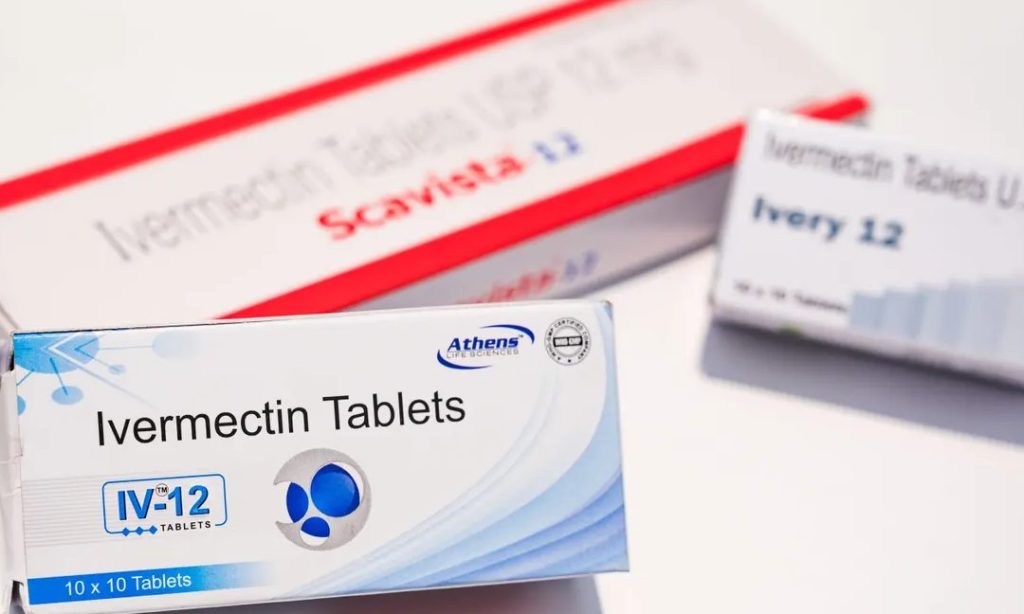Ivermectin Not Working Manimalar Selvi Naicker. Round 1 Manimalar Selvi Naicker
Cochrane used their Risk of Bias Tool 2 in their latest systematic review of Ivermectin. Prof Dr Manimalar questioned why Cochrane was considered the gold standard journal when Cochrane used their RoB 2, as if to imply Prof Dr Mani rejected Cochrane’s RoB 2.
Unfortunately I did not find any reason in the first video of Prof Dr Mani’s series that is specifically related to RoB 2, why there is medicine from RoB 1 to 2, what is the scientific criticism on this issue. What I heard is that she is new at the introductory stage, inexhaustible with the exclusive attitude that only experts in related fields are qualified to make a systematic review, so Maria Popp is not a pharmacist who specializes in public health and has the right to be the principal investigator? And there is no end to the accusation that Cochrane is owned by non-doctors, on the topic of Cochrane’s fight with Dr Peter, I think this kind of quarrel doesn’t need to be added, we just go straight to the point.
Well I want to be straight to the point, Dr Mani praised the FLCCC research journal. There are many studies from the FLCCC, they brag that they are the contributors of data to the WHO, even though some are reported plagiarism from Chinese scientists who earlier made studies such as the incidence of blood clots and inflammation in Covid infection.
Dr Mani seems to reject the Cochrane method which uses their Risk of Bias Tool 2 in evaluating each meta-analysis study, there are 14 + 41 studies reviewed in the Cochrane journal. To him RoB is problematic and maybe he wants to claim RoB is biased, then maybe need to accept all meta-analysis or RCT studies without evaluating ROB? I don’t know his stance and maybe he has his own RoB. I support the Cochrane journal method because in Risk of Bias because:-
1) It is objective and precise
2) We need to evaluate a study even if it is claimed according to the original question (meeting endpoint) from various angles, in terms of drug dosage, the type of drug being compared, is it compared to an effective drug? Are other medications such as steroids mentioned mixed in the drugs studied?
3) We need to assess the truth of a study, for example Hill 2021 and Kory 2021 included in FLCCC studies have taken data from studies that contain false data such as Elgazzar, Mahmud, Hashim and others.
This is a major question actually, because when we include data from false studies or biased studies, then it will affect statistical analysis and outcomes. For example, FLCCC included data from Elgazzar, Mahmud and Hashim, so the odd ratio of ivermectin in prophylaxis for covid would be in favor of ivermectin over the control group. My keypoint here, Risk of Bias Tool is necessary in every meta analysis and systematic review, otherwise you will go through mistakes like FLCCC. It’s simple to understand here.
Hill 2021 identified 18 RCTs up to December 2020 and was a preprint article. The author team used the Cochrane Risk of Bias tool 1 for critical appraisal. However, the certainty of evidence was not assessed. Six RCTs investigating people with moderate ‐ to ‐ severe COVID ‐ 19 were pooled for the meta ‐ analysis on mortality with a benefit of 75% for ivermectin (RR 0.25, 95% CI 0.12 to 0.52). Hill 2021 compared ivermectin alone or in combination with doxycycline to control interventions, including placebo, standard of care, or hydroxychloroquine, and pooled all in one comparison. We did not include five of the six studies in our meta -analysis on mortality of people with moderate COVID ‐ 19, including Elgazzar 2020, Hashim 2020, Mahmud 2021, Niaee 2020, and Okumuş 2021. Hashim 2020 and Mahmud 2021 combined ivermectin with doxycycline , which makes it impossible to isolate any potential effect to the individual drugs used. Elgazzar 2020 compared ivermectin to hydroxychloroquine. The latter is not effective for the treatment of COVID ‐ 19 and has resulted in clinical adverse effects (Singh 2021). We did not consider hydroxychloroquine an eligible comparator to investigate the efficacy and safety profile of ivermectin for the treatment of COVID ‐ 19. Niaee 2020 included a population of about 30% of people who were SARS ‐ CoV ‐ 2 ‐ negative, which we did not consider appropriate to investigate SARS ‐ CoV ‐ 2 ‐ specific antiviral effect of ivermectin. Okumuş 2021 compared ivermectin to an eligible comparator and investigated an eligible population, but reported mortality at an ineligible time point (e.g. on average three months). Finally, there is only one small study with broad CIs and high uncertainty for a mortality benefit (RR 0.12, 95% CI 0.01 to 2.09), which is also included in our meta analysis on mortality of people with moderate COVID ‐ 19 (Kirti 2021). However, we included mortality at day 28 rather than in ‐ hospital mortality, which was different in one participant who died in the control group.
Kory 2021 identified seven RCTs on the efficacy of ivermectin in outpatients with mild COVID ‐ 19 and six RCTs in hospitalized people with COVID ‐ 19. The review was published in the American Journal of Therapeutics and did not provide any search date or other methodological details used for meta ‐ analyzes. Kory 2021 concluded there was a mortality benefit based on the inclusion of six of the 13 studies (odds ratio (OR) 0.13, 95% CI 0.07 to 0.28), which was not a valid inclusion because Elgazzar 2020, Hashim 2020, Mahmud 2021, and Niaee 2020 were not eligible for the reasons described above, and Cadegiani 2020 was not an RCT. As described for Hill 2021, there remains only one small study (Kirti 2021), and a high degree of uncertainty for a mortality benefit.
The most recent systematic review with meta ‐ analysis was published by Bryant 2021 in the American Journal of Therapeutics (same journal as Kory 2021). The review stated they followed the Cochrane’s rapid review template and had a review protocol that was not registered on an appropriate register (e.g. PROSPERO). The author team used the Cochrane Risk of Bias tool 1 for critical appraisal and GRADE to assess the certainty of evidence. A meta -analysis of 15 trials found that ivermectin reduced the risk of death by an average of 62% compared with no ivermectin treatment (RR 0.38, 95% CI 0.19 to 0.73). The certainty of evidence was moderate due to study design limitations. The author team conducted several sensitivity analyzes excluding outlier studies, studies at high risk of bias, and studies with active comparators. The effect estimates remained robust. However, even the sensitivity analysis excluding studies with active comparators, which was the most comparable analysis to our analysis on mortality, based their conclusion on studies that did not meet eligibility criteria for this current Cochrane Review (RR 0.41, 95% CI 0.23 to 0.74 ).


